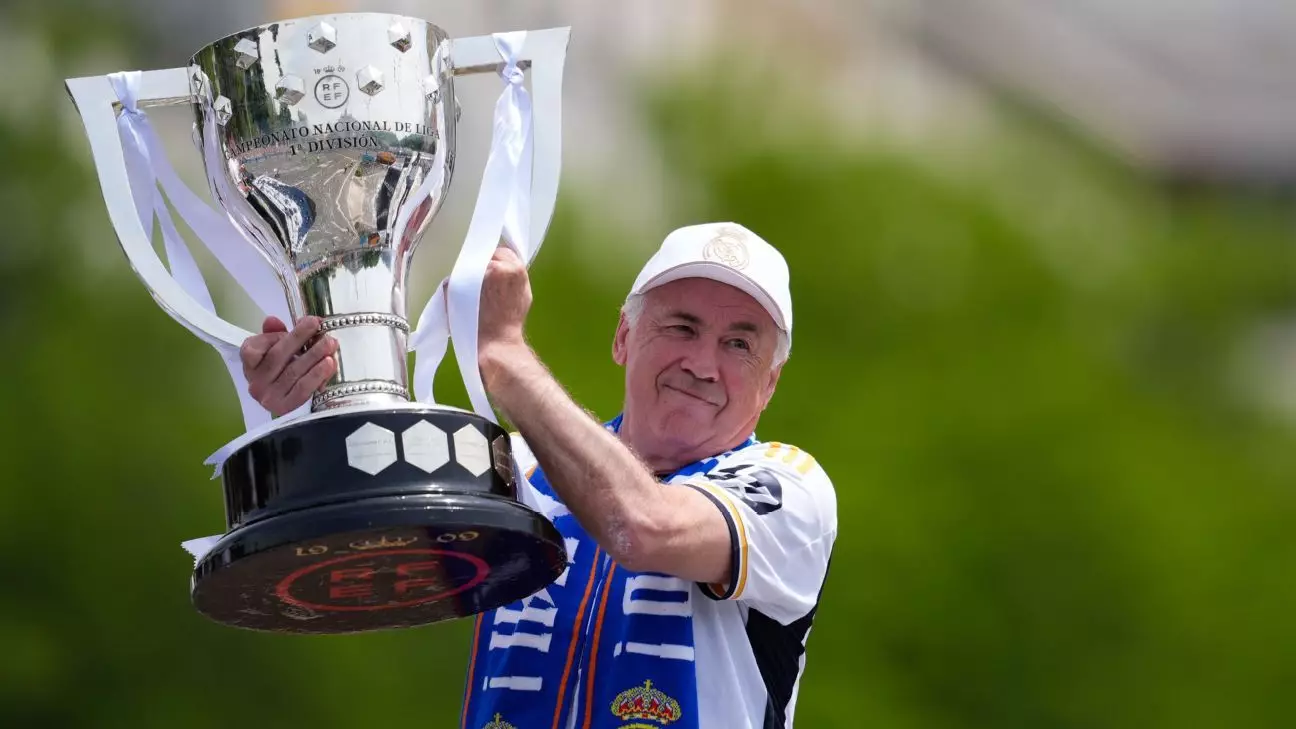Carlo Ancelotti has etched his name into the annals of football history, recently becoming the most decorated coach in the illustrious history of Real Madrid. His monumental achievement came following a commanding 3-0 victory against Pachuca in the FIFA Intercontinental Cup final, marking his 15th trophy with the club. Ancelotti’s tenure at Real Madrid has spanned two distinct periods — from 2013 to 2015 and returning in 2021 — during which he has expertly navigated the demands of a club laden with expectations and a rich tradition.
Ancelotti’s resume at Madrid is impressive. He has guided the team to three UEFA Champions League titles, two La Liga championships, two Copa del Rey trophies, two Spanish Supercup victories, three UEFA Super Cups, two Club World Cups, and now, the Intercontinental Cup. His success eclipses the record previously held by the legendary Miguel Muñoz, who, during his 14 years at the helm, amassed a collection of trophies that included two European Cups and nine league titles.
The magnitude of Ancelotti’s success can’t be understated. It is a testament not only to his tactical acumen but also to his ability to cultivate a winning mentality among his players. His remarks following the triumph over Pachuca reflected both humility and confidence: “I’m very happy … It’s a success,” he stated, emphasizing the importance of attitude and quality within the squad.
Ancelotti’s coaching philosophy revolves around empowering his players. Young talents like Vinícius Júnior, Kylian Mbappé, and Rodrygo have flourished under his guidance. In his post-match comments, Vinícius noted, “Congratulations to the mister, he deserves it, he gives us freedom, he’s perfect for us.” Such praise from players highlights Ancelotti’s ability to foster an environment where creativity and individual brilliance can shine.
Fede Valverde, another key player, echoed this sentiment, stating, “He guides us.” This relationship between coach and players is crucial in football, where an understanding and trust can significantly impact performance on the field. Ancelotti’s tactical flexibility allows him to adapt strategies to leverage the innate qualities of his players, making him a master strategist.
Despite reaching this pinnacle of success, Ancelotti’s ambitions are far from fulfilled. In January, Real Madrid will participate in the Spanish Supercopa, with a semifinal match against Mallorca on January 9, followed by a potential final against Barcelona or Athletic Club. These upcoming fixtures are opportunities not only to add to Ancelotti’s trophy count but also to consolidate Madrid’s dominance in Spanish football.
Ancelotti’s managerial journey, spanning nearly 30 years, has seen him achieve unprecedented success across Europe’s top leagues. He is the only coach to have won league titles in Spain, Italy, Germany, England, and France, reflecting a versatility that is rare in modern football. Moreover, holding the record for five Champions League titles makes him a living legend in the sport.
What sets Ancelotti apart is not just his trophy cabinet but his approach to management. He cultivates a sense of unity and purpose within his teams, which often translates to exceptional performances on the pitch. His ability to adapt to different footballing cultures and styles is indicative of a transformative leader who understands the game’s intricate dynamics.
Ancelotti’s legacy continues to grow, and while he celebrates recent victories, it is his consistent adaptability and deep understanding of his players that propels Real Madrid forward. As he aims for more commendable achievements, football fans worldwide will be keen to witness how Carlo Ancelotti navigates the next chapter of his historic career. In a sport defined by rapid changes, the steadfastness and brilliance of Ancelotti remain a comforting constant for players and fans alike.

